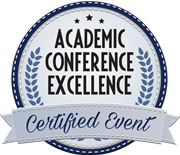
Daniel Ikhu-Omoregbe
Cape Peninsula University of Technology, South Africa
Title: Energy materials from City of Cape Town municipal solid wastes – an overview and assessment
Biography
Biography: Daniel Ikhu-Omoregbe
Abstract
The City of Cape Town’s Integrated Waste Management Plan (IWMP, 2006) for 2012 – 2013 financial year aims at achieving a 20% reduction in waste generated and 10% reduction in waste to landfill. As part of achieving these waste reduction aims such as through waste generation preventive measures, waste recycling and alternative waste disposal options, thermal waste conversion can play an integral role in achieving these targets. A recently concluded Municipal Systems Act section 78(3) process assessment on waste management system by the Solid Waste Department has also explicitly targeted waste to energy as an option for alternative waste disposal technology, especially for dry dirty or non-recyclable and organic waste material. In this paper an overview of solid waste management practices will be discussed as well as the characteristics of municipal solid wastes from the city. An analysis of the RDF obtained from the MSW and fish wastes will be discussed as well as briquettes from corn stovers. Another energy material that can be obtained from MSW is hydrogen which can be used in PEM fuel cells. Sewage treatment to obtain biogas and bio-solids will also be discussed. The quality of municipal solid wastes (MSW) needs an improved analysis to enhance the choice for energy exploitation and environmental assessment of fly and bottom ashes associated with the thermochemical conversion. The paper will conclude by analysing the production of electricity from one of the city’s landfill sites.

